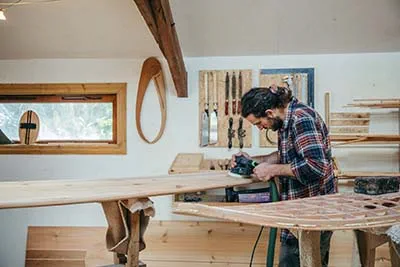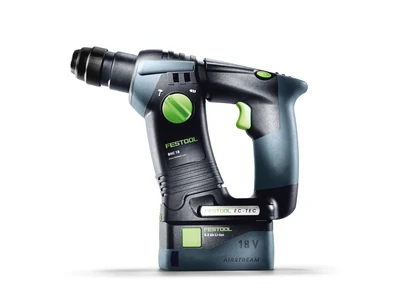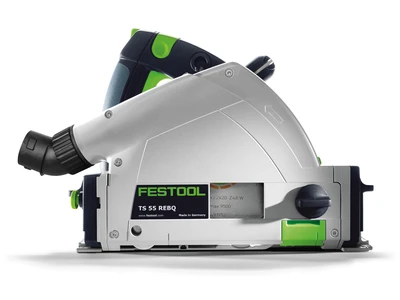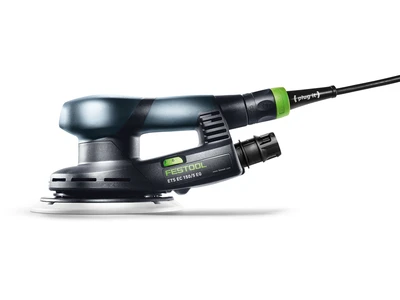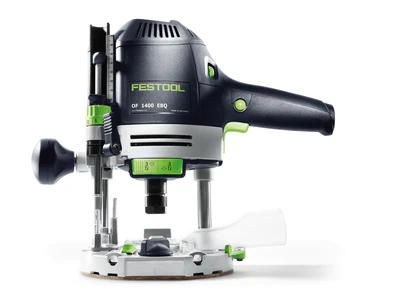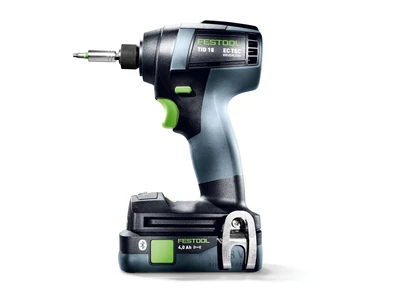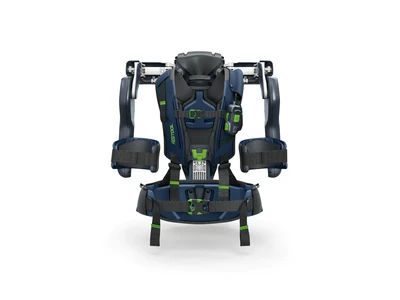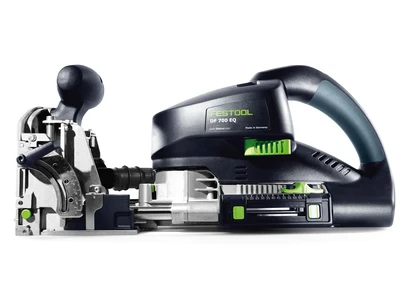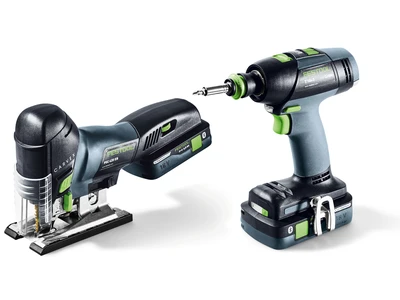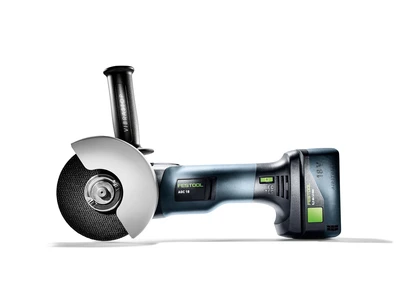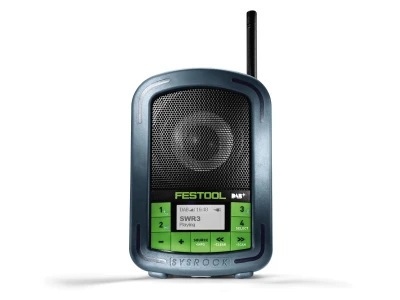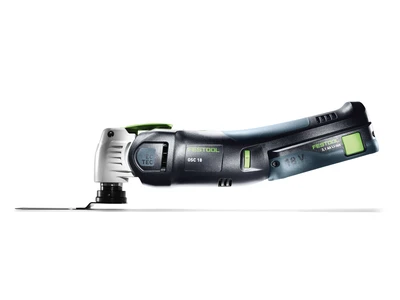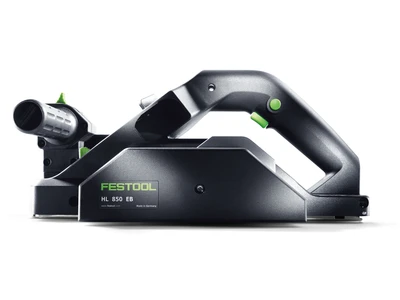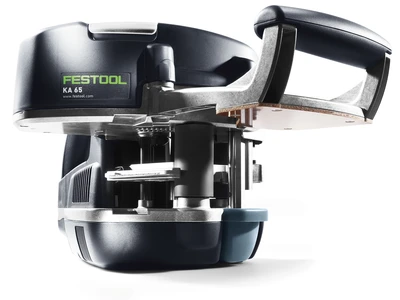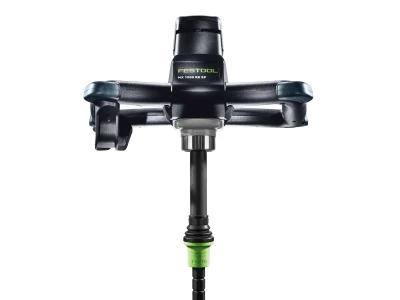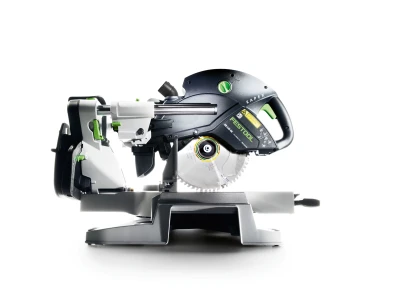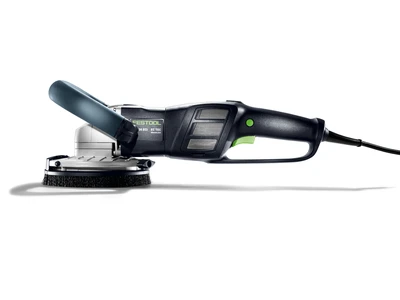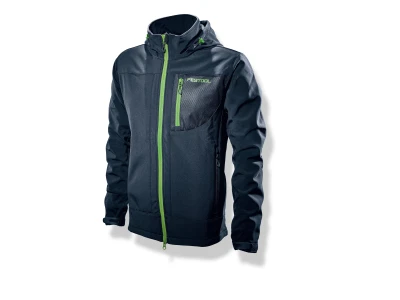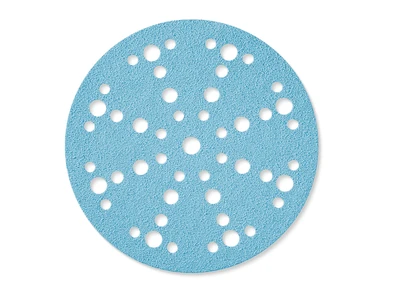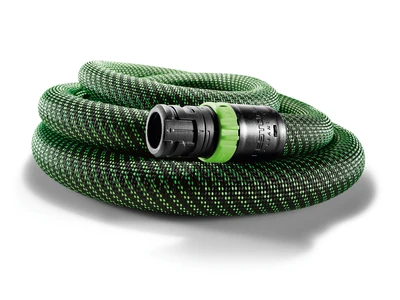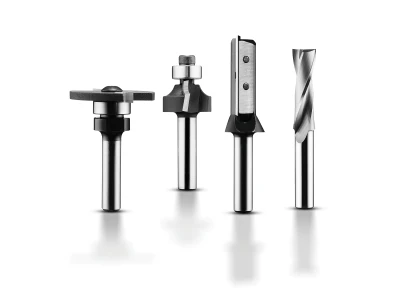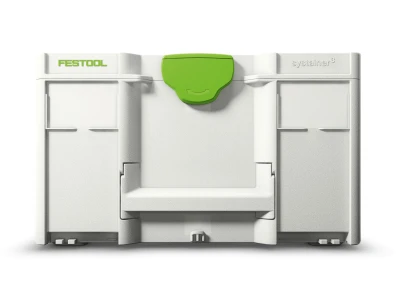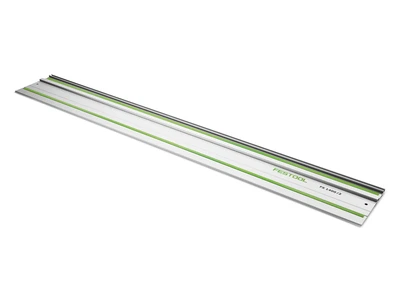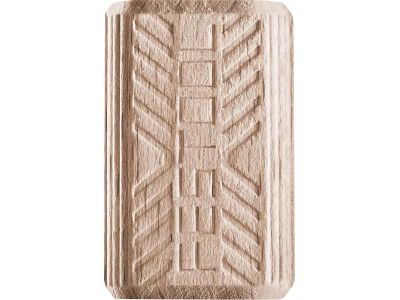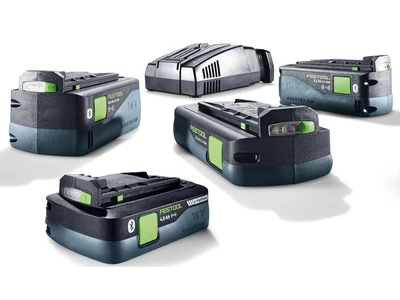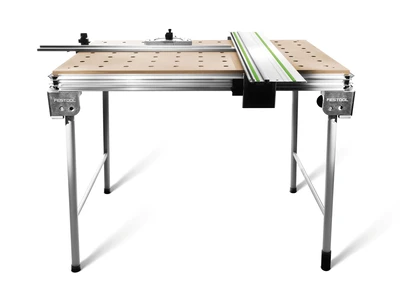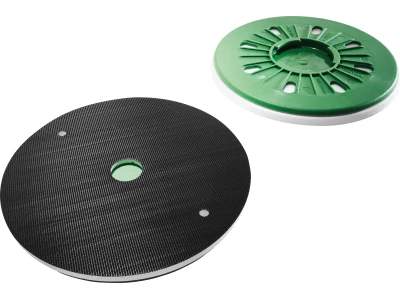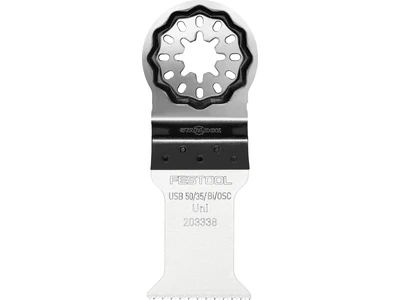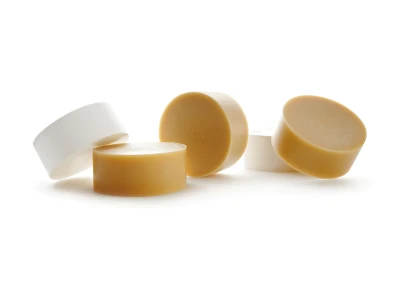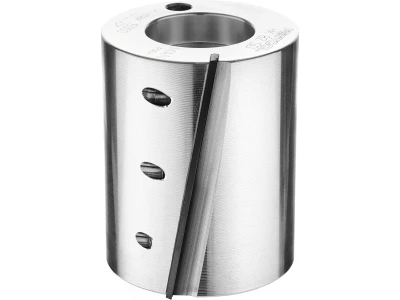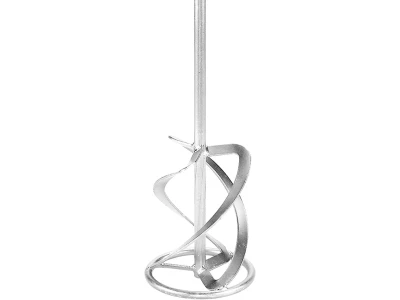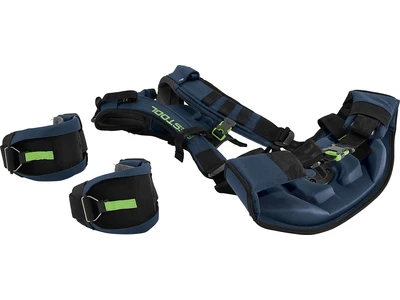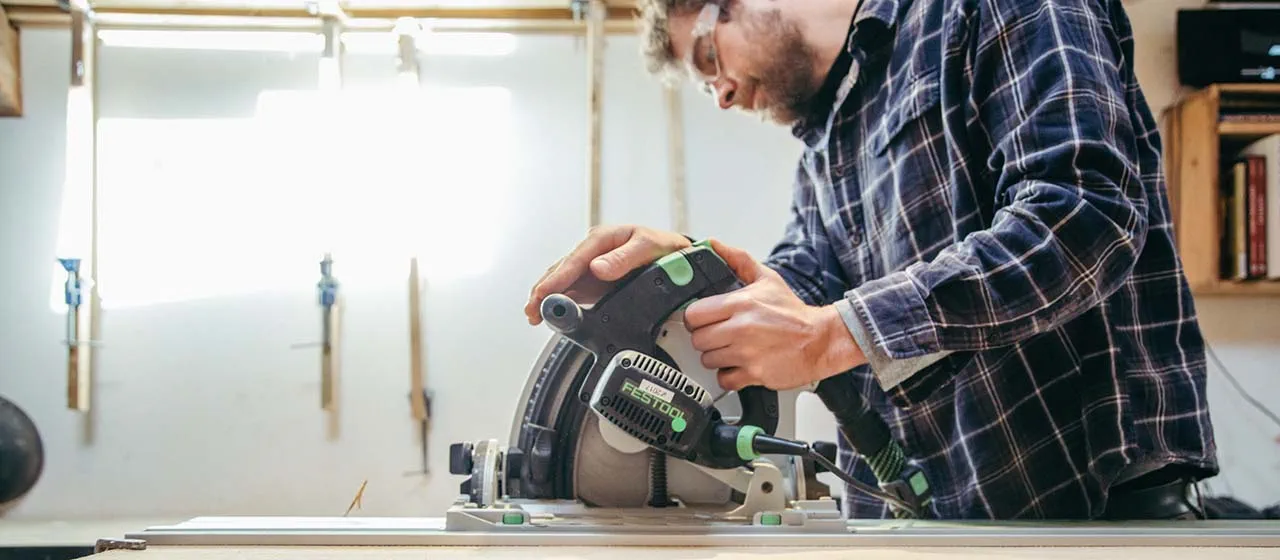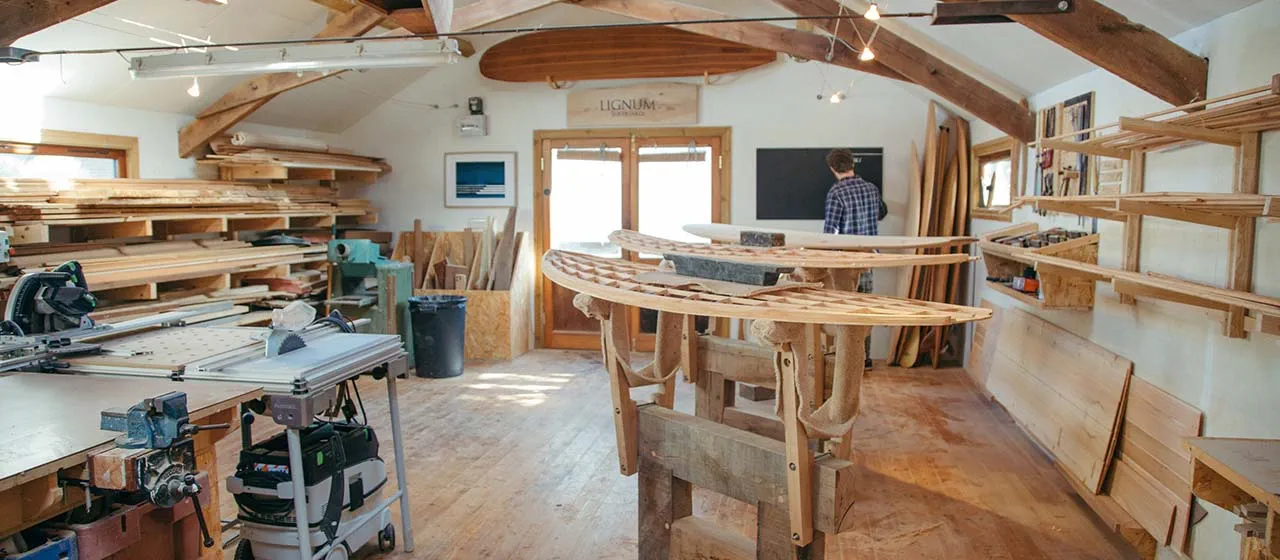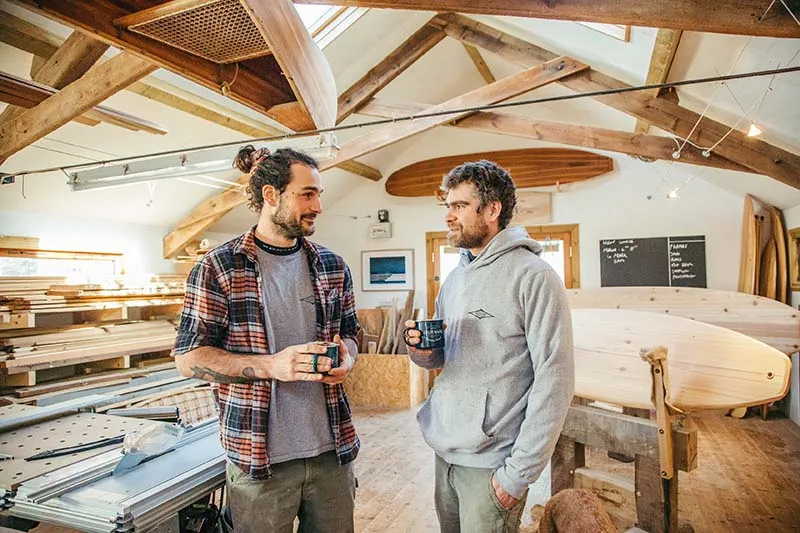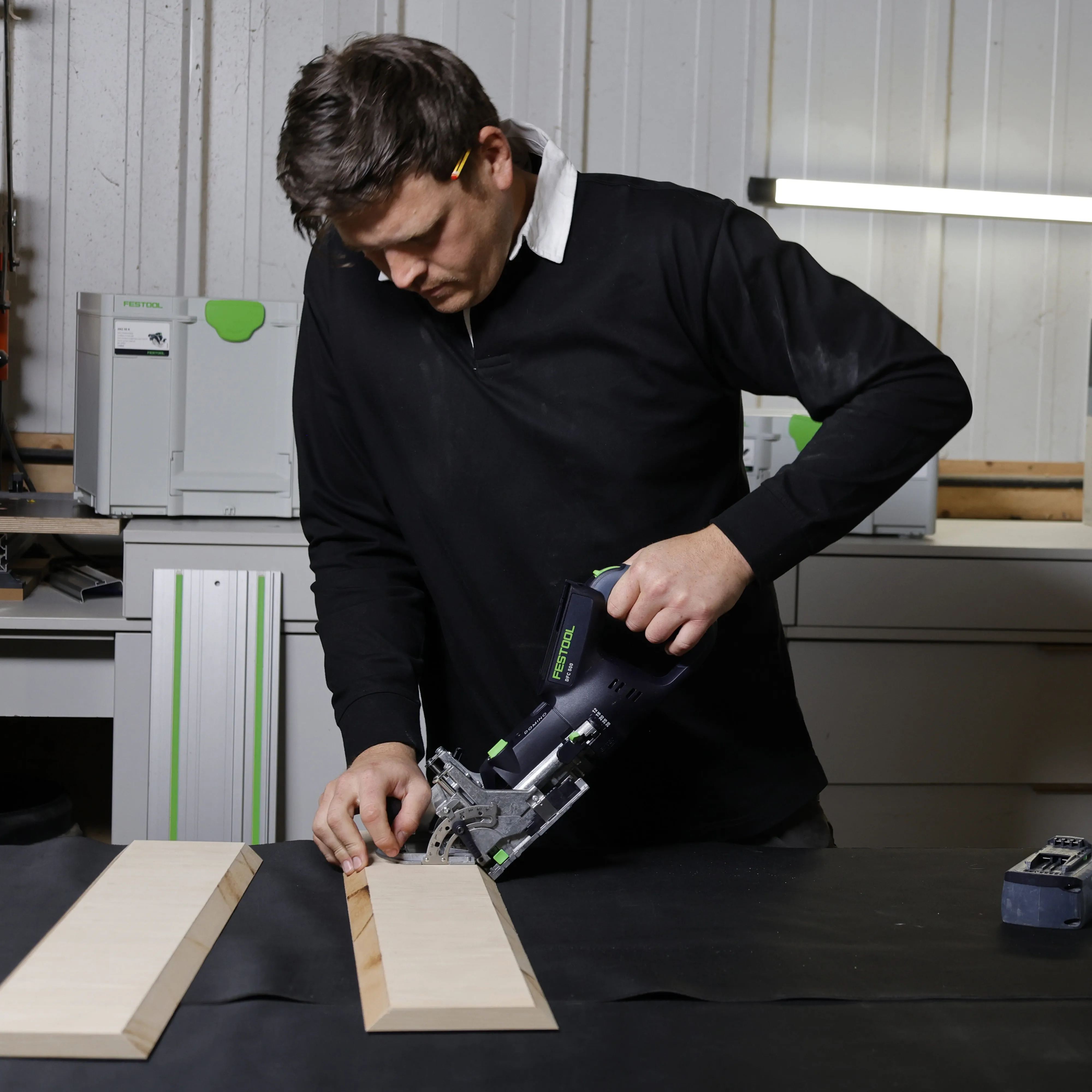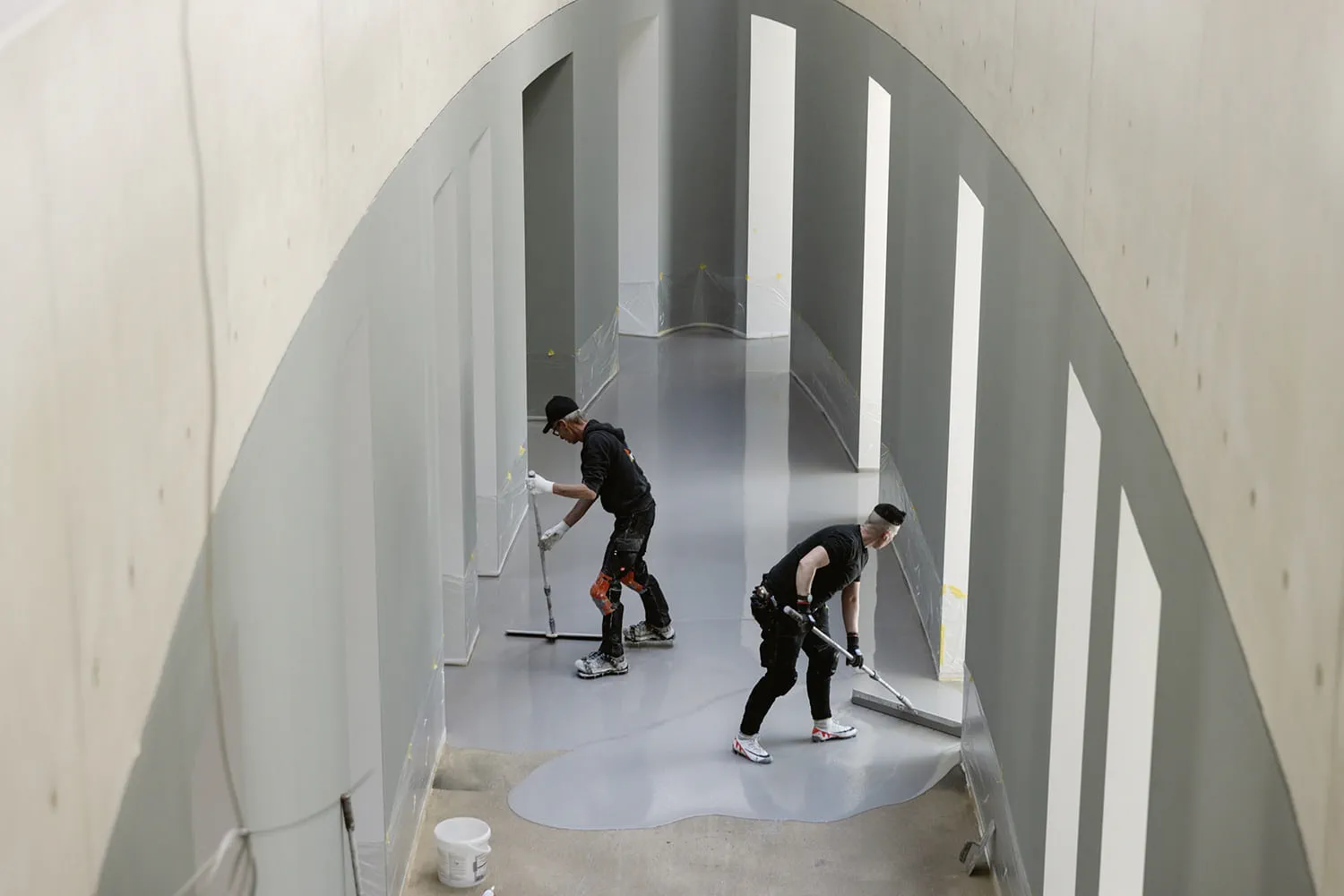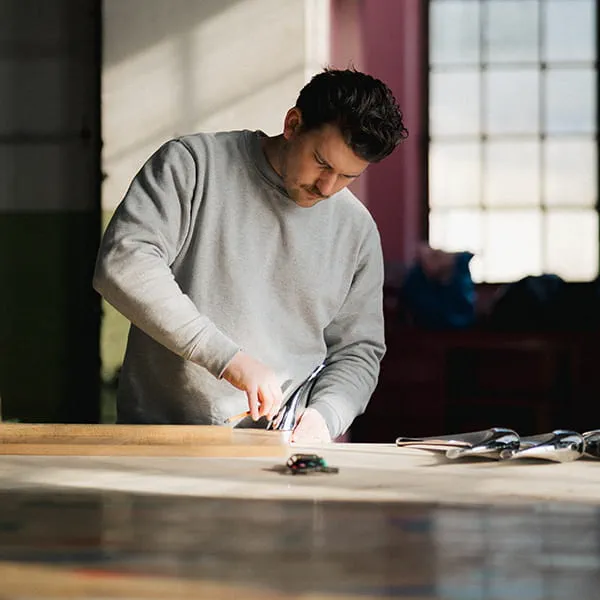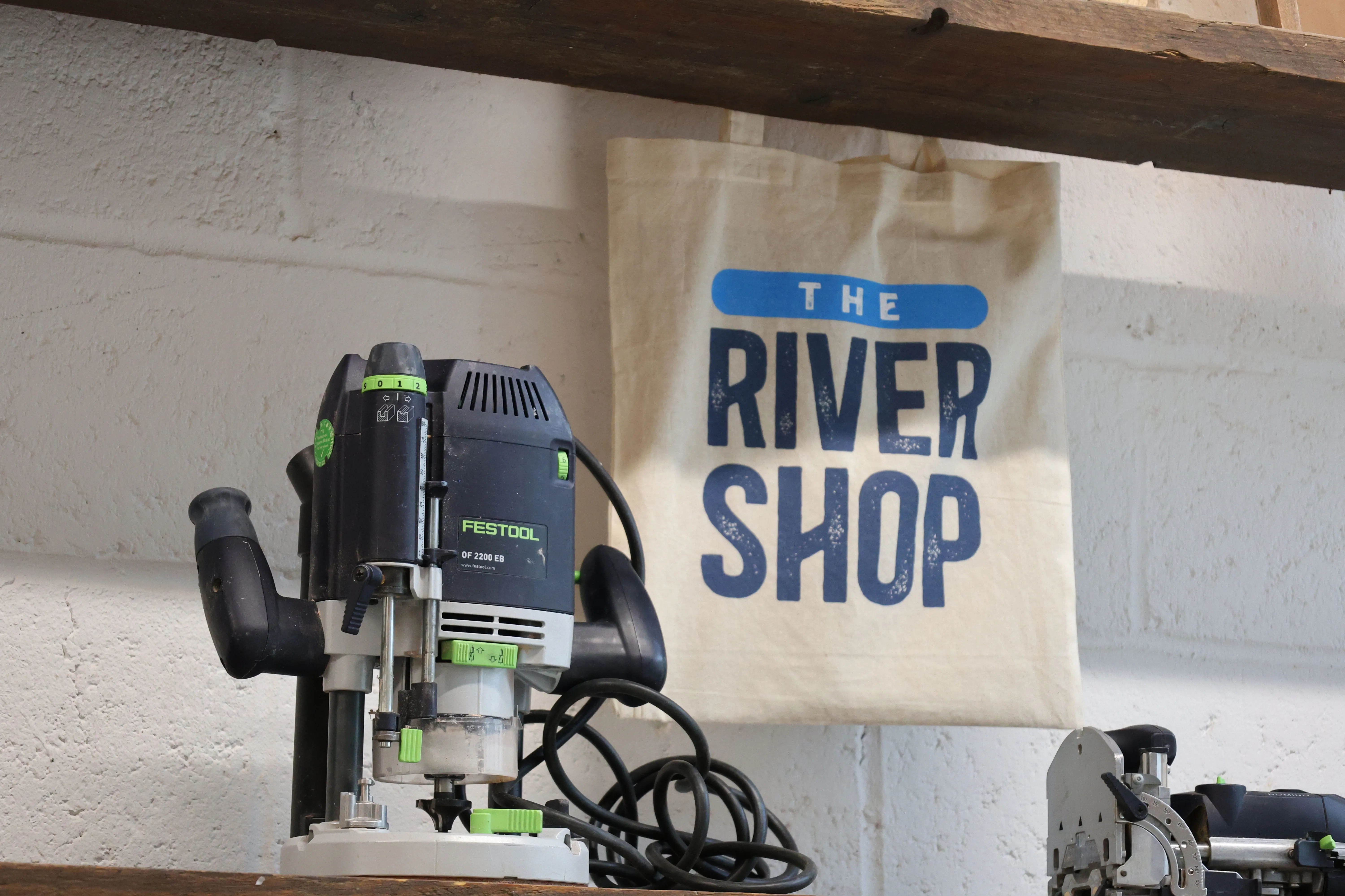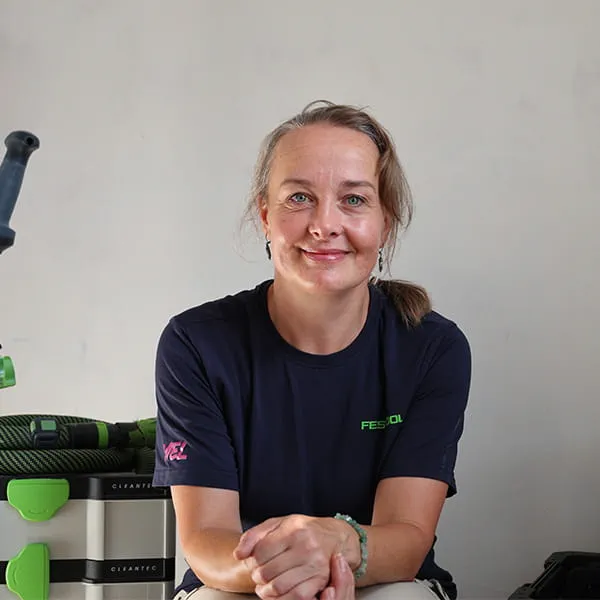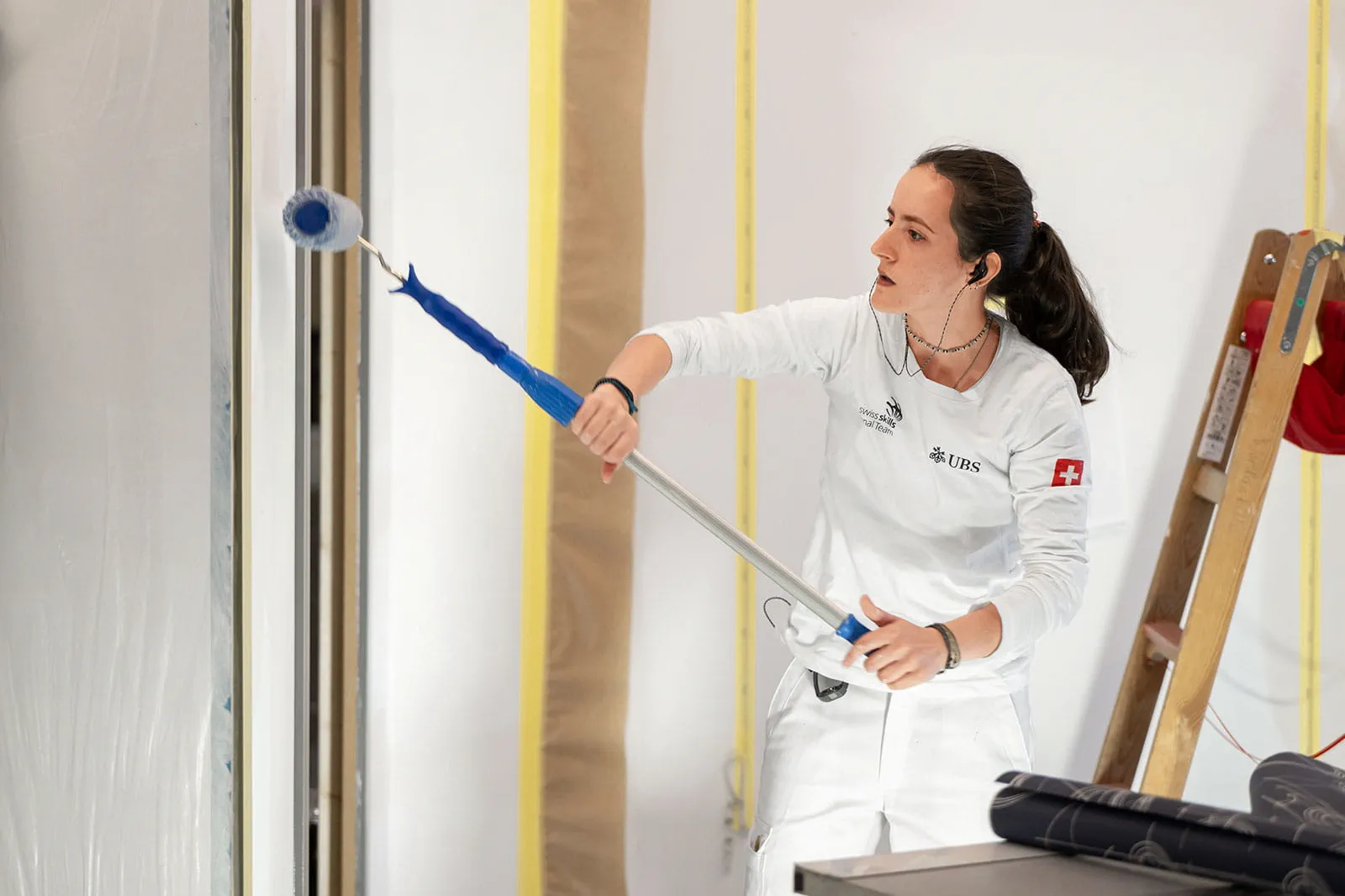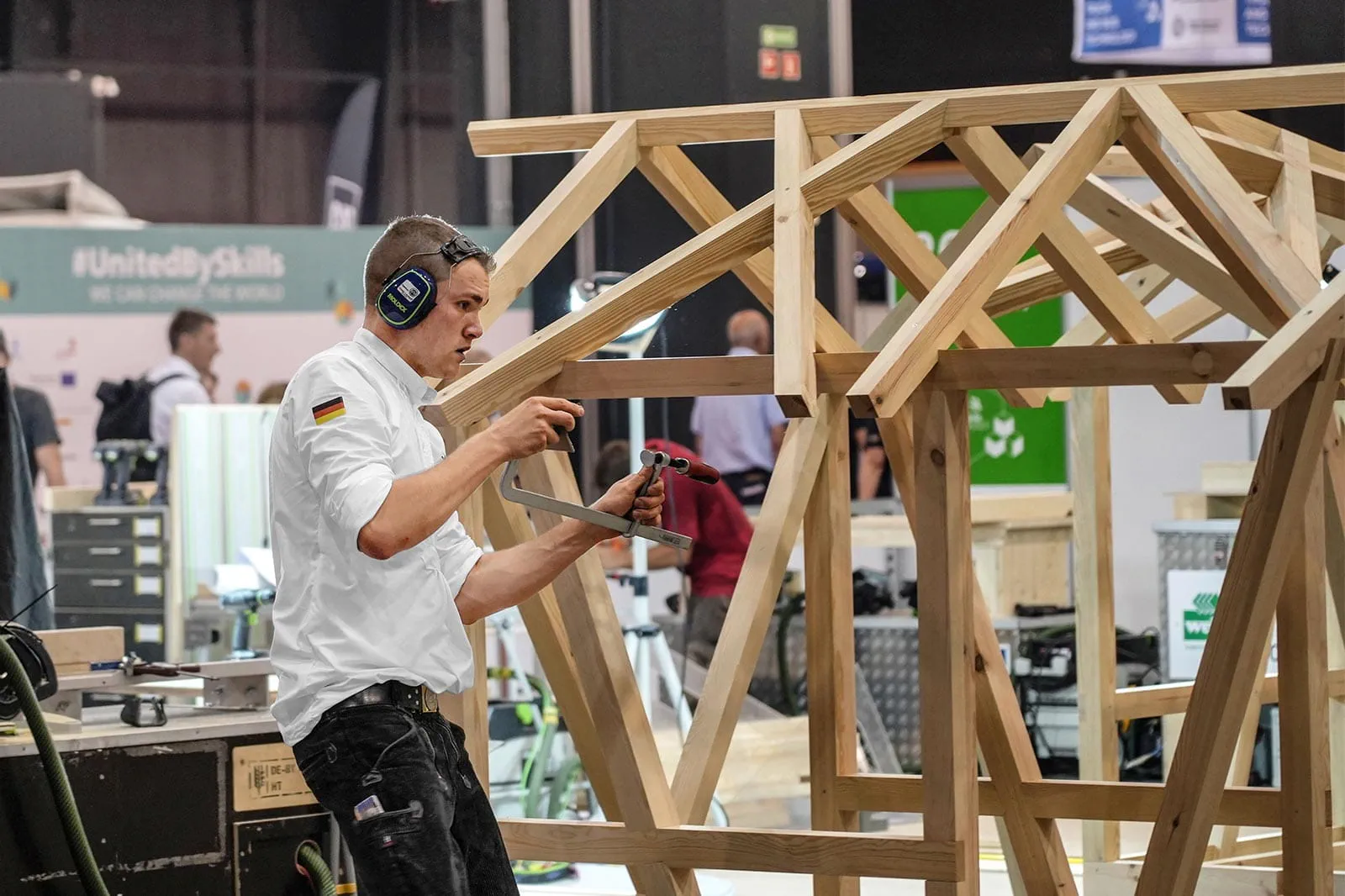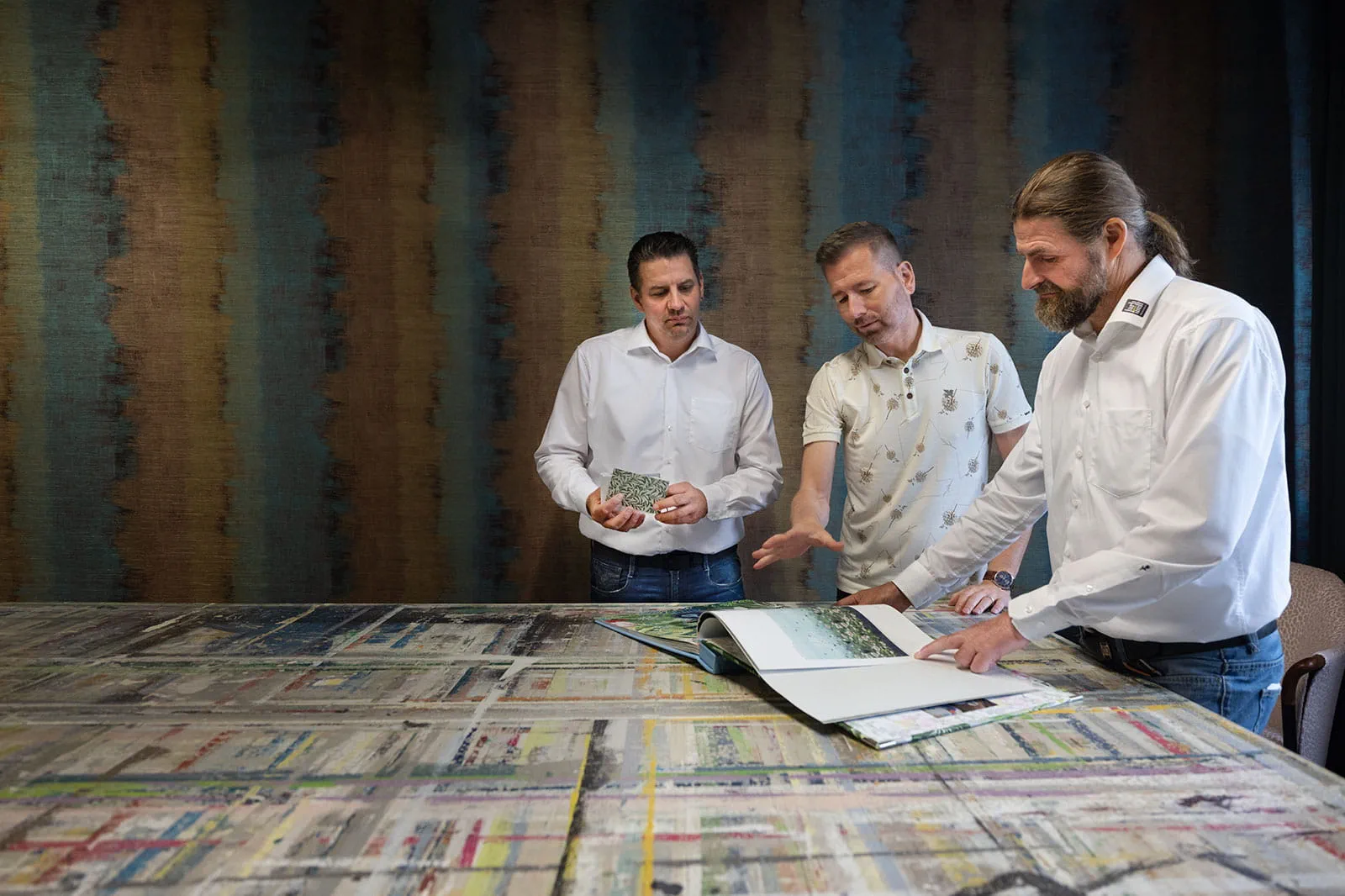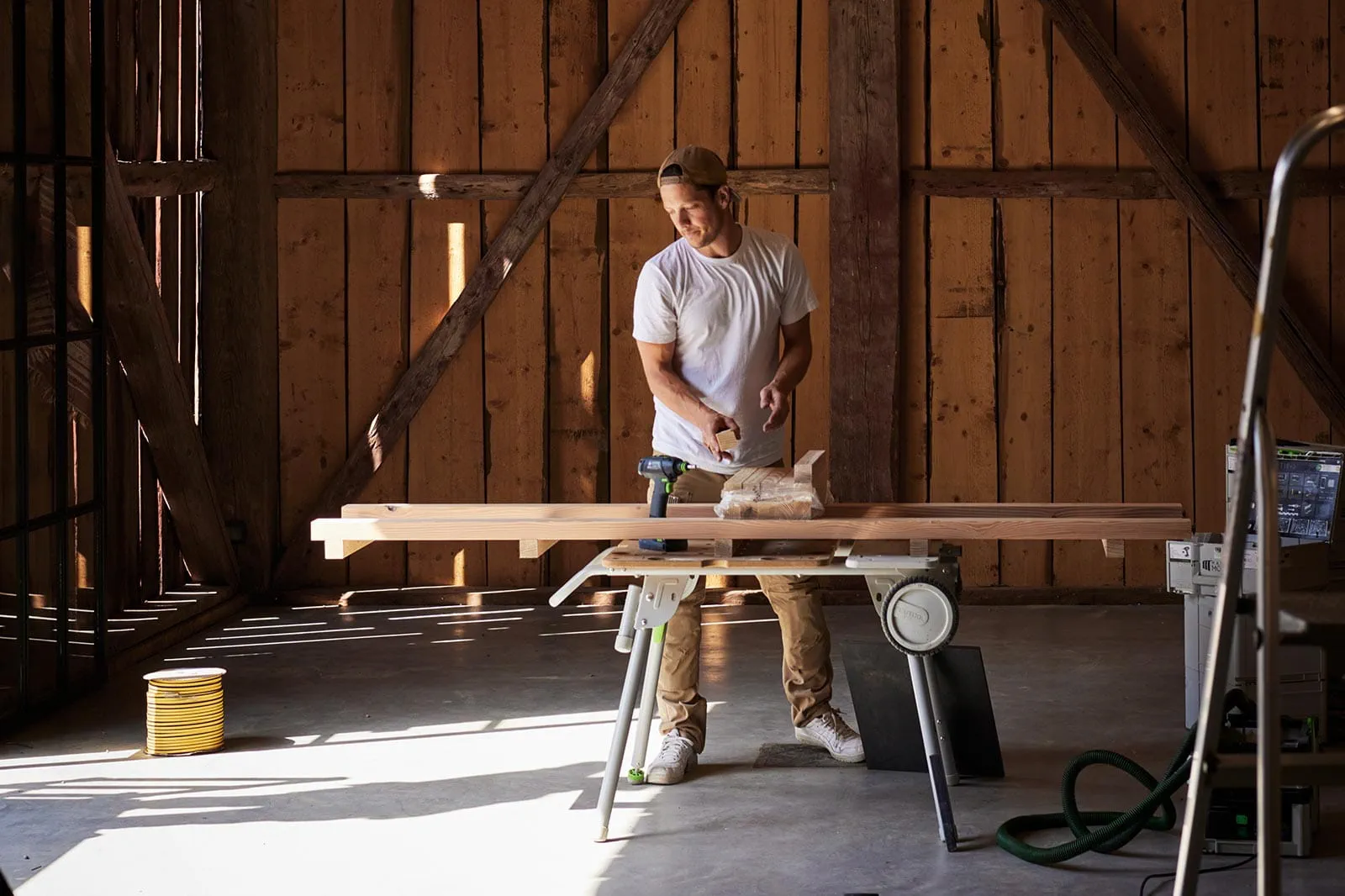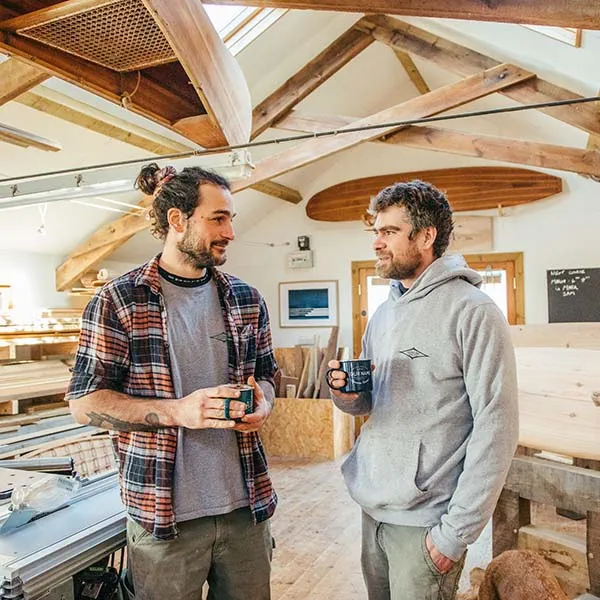
Back to the roots
Craft hand-made boards in combination with pure passion power tools from Festool
The British company Lignum Surfboards has taken surfboard production back to its roots, championing the use of wood in its products as opposed to polyurethane foam. In their workshop, Alen van Rooyen and Harry Robinson craft hand-made boards of first-class quality.
Our journey to Lignum's surfboard workshop takes us almost to the southernmost point of England, in South Devon. Here, right beside the sea, Alen van Rooyen and Harry Robinson have been able to fulfil a lifelong dream. Since 2006, they have been producing surfboards, skateboards and model aeroplanes that are hand crafted from wood. The two have gone back to the very 'roots' of manufacturing, in the truest sense of the word, using a mix of traditional joinery and modern tool technologies in the construction of the boards.
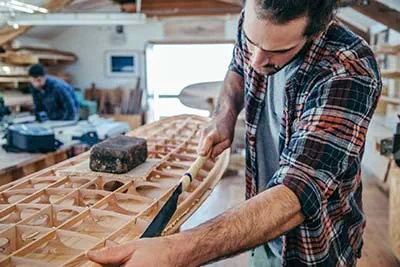
Passion for woodwork
The company's two founders have many years of experience in boat construction and traditional carpentry to draw on, and their passion for woodwork is evident in the products they create for Lignum. The surfboards are made from western red cedar that is grown in the British Isles. The trees are sometimes referred to as 'giants', since they can grow to a height of 40 metres. "This wood is renowned for being lightweight and durable, which makes it extremely suitable for boat construction," says Alen, "Constructing a surfboard is like witnessing the growth of a seed: It starts off small and transforms into something quite majestic." At Lignum, every board is developed from scratch. Including the time taken for planning and for the board to dry out, the entire process takes six to eight weeks until completion. Throughout this period, it is crucial to have the right tools on hand to assist in producing the best possible result.
„We make high-quality products that are made from an elaborate material. Because of this, we also need to have the right tools for the job, since the quality of a product always reflects a craftsman's skills and expertise.“
Alen - founder of Lignum
Wood and its properties
"We are well known for producing handmade wooden surfboards and power tools allow us to work quicker and with greater precision. We make particular use of the circular saw and the eccentric sander. We use these tools throughout our work on the basic material – down to the very last finishing touch – before our boards leave the workshop," Harry explains to us. "We make high-quality products that are made from an elaborate material," adds Alen. "Because of this, we also need to have the right tools for the job, since the quality of a product always reflects a craftsman's skills and expertise." He then begins his work with the TS 75 EBQ circular saw, cutting out the first piece of wood with utmost precision. So what are the particular challenges, if any, when it comes to surfboard construction? For one thing, the western red cedar wood is very difficult to work with: Knowledge of the wood's properties is just as important as knowledge regarding tools for sanding down this sensitive surface. The different thicknesses between the annual rings of the tree makes the sanding process a rather delicate affair. It's therefore crucial that the right sandpaper is used for the job.
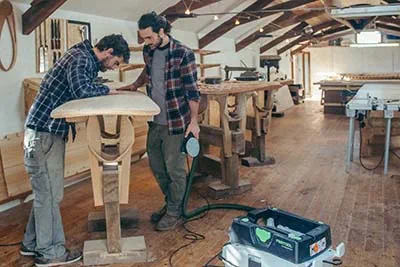
The final touch for a finished board
Harry explains to us that the workshop faces certain issues with regard to working conditions: "The two greatest challenges we face when working with wood are the dust and the sanding process. The dust gets everywhere, while sanding takes a long time. Even the smallest of marks or scratches left on the board can make all that work worthless. "He adds that "a variety of abrasive grades are required for the surfaces – the degree of hardness and the grain size are decisive factors. Thanks to the tools, we can work significantly faster, makes a better product and everything cleaner." The finishing touches to a board are made and a coating added to the surface of the wood. The next day, the board is taken for a brief test run along the coast of Devon, which just so happens to be one of Britain's prime surfing spots. We eventually part ways with Alen and Harry, but one thing's for sure: we'll be back again for a surf session.
